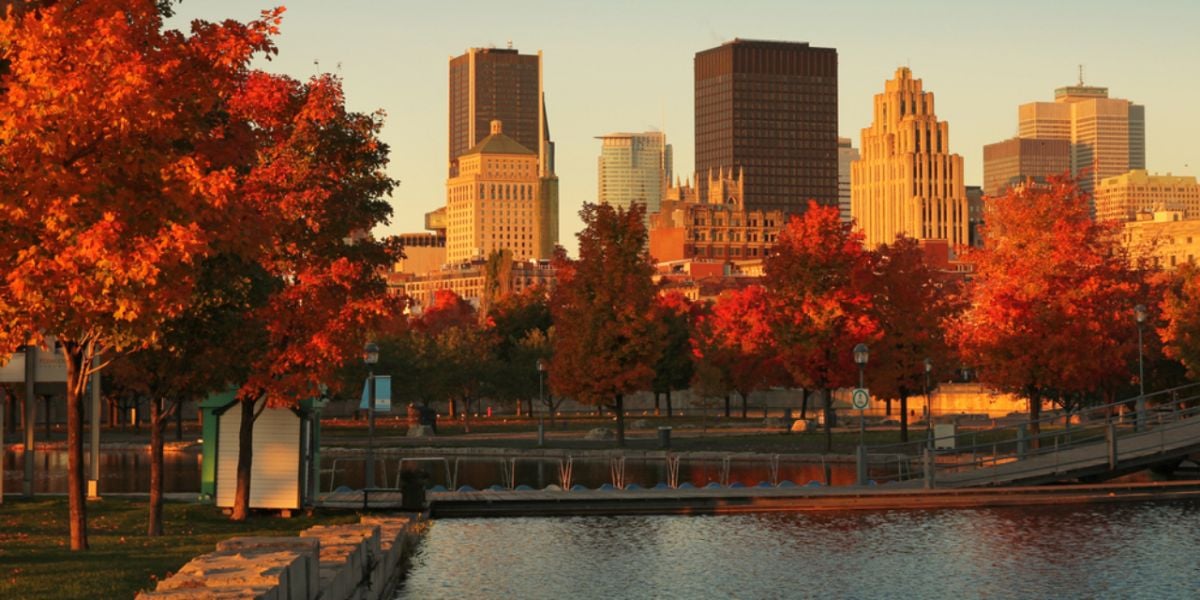
Are you thinking about visiting Quebec soon? Unsure about what steps to take? In this article, Expat.com breaks down the procedures for traveling to Quebec.

If you're going to Quebec for less than six months, individuals from about 50 countries are required to obtain an Electronic Travel Authorization (ETA) in addition to a valid passport. The AVE application is submitted online through the official Canadian government website, with a fee of CAD$7. Typically, you'll receive a response via email within 72 hours. If your country isn't on the ETA list, you'll need to apply for a temporary resident visa, also known as a visitor's visa, through the Canadian embassy or consulate in your region. For more details, use the Citizenship and Immigration Canada (CIC) tool.
Visiting Quebec as a tourist
If you plan to visit Quebec as a tourist, even without requiring a visa, you must fulfill specific conditions: possess an ETA and a valid passport, be in good health, have adequate funds to sustain yourself throughout your stay in Canada, and maintain a clean criminal record.
You need to convince the immigration officer that you plan to go back to your home country when your stay ends. Additionally, you might be requested to present the results of a medical examination, a letter of invitation from a resident of Quebec, and evidence of a return ticket or a ticket to another destination.
Quebec provides a variety of services for tourists, including accommodation and dining options to fit every budget. Nonetheless, the living standards are quite comparable to those in European countries like France and the UK.
Quebec and Canada are well known for their vast open spaces when it comes to activities. Camping is a popular choice for both tourists and locals in Quebec. During winter, it's easy to rent snowshoes, ice skates, and skis to make the most of the snowy landscapes. Given that temperatures often dip well below zero, having a good coat, gloves, and a hat is essential.
Traveling with children in Quebec is convenient, but it's important to consider the long distances if you plan to explore the entire province. Kids who are 12 and under must occupy the back seat of a vehicle. If you prefer not to bring your car seat on the plane, you can rent one when hiring a car or purchase a used one. In this situation, be sure to check the seat's expiration date, usually indicated on it.
Good to know:
If you're traveling from French-speaking Europe, Air Canada and Air Transat provide the most direct flights to Quebec. For those coming from French-speaking Africa, Royal Air Maroc and Air Algérie are viable options. You can explore additional recommendations by using an online flight comparison tool.
Family visit to Quebec
If your children or grandchildren are permanent residents or citizens of Canada, you have the option to apply for a Super Visa for Parents or Grandparents. The timing of your Super Visa application can impact the duration of your stay in Canada. For applications submitted after June 22, 2023, visa holders can stay for up to 5 years at a time. Conversely, if you applied before June 22, 2023, and entered Canada prior to that date, your stay duration is determined by the border services officer upon entry. To extend your stay, you can either leave Canada before the end of your authorized stay and re-enter after June 22, 2023, or apply to extend your stay in Canada.
To secure a super visa for parents or grandparents, several conditions must be fulfilled: you need to undergo a medical examination conducted by a doctor designated by CIC, provide a financial support commitment from your child or grandchild, and obtain medical insurance from a Canadian insurer. It's important to note that when applying for a "super visa", you cannot include dependents in the application.
Business visit to Quebec
If you're planning a business visit to Quebec, first, confirm whether you require an ETA or a temporary resident visa. Entry to the province is typically granted for a period ranging from a few days to a few weeks, depending on the purpose of your visit. It's essential to demonstrate to immigration that you have plans to return to your home country within 6 months of arriving in Canada and that you have no intention of seeking employment there. Additionally, you must have enough funds to support yourself throughout your visit.
Good to know:
Proof of vaccination against COVID-19, screening tests, quarantine, and the use of ArriveCAN are no longer required for travel to Canada in 2023. For more information, visit Canada.ca, IRCC section.
Extending your stay in Quebec
You have the option to request an extension of your stay in Quebec at least 30 days before your visitor status expires. For most visitors, the application process for an extension is done online. Additionally, you can apply for an extension if you plan to study or work in Quebec for a longer period, want to change your permit type, or need to modify the conditions of your existing permit.
Starting in 2023, fees beginning at $100 CAD are applicable to your request. The processing times can vary, with an online application taking 83 days in August 2023. If you've submitted your extension application, and your current permit expires, you will be granted implied status, meaning you will be considered a temporary resident until your new application is processed.
You can find out the status of your application in your online space on the CIC website or by contacting the CIC Call Centre at 1-888-242-2100 from within Canada only.
Good to know:
Nationals of some countries must also provide their biometric data – fingerprints and photo – when applying for temporary residence. To find out more, visit the CIC website.
Useful links:
Citizenship and Immigration Canada – General information
We do our best to provide accurate and up to date information. However, if you have noticed any inaccuracies in this article, please let us know in the comments section below.








